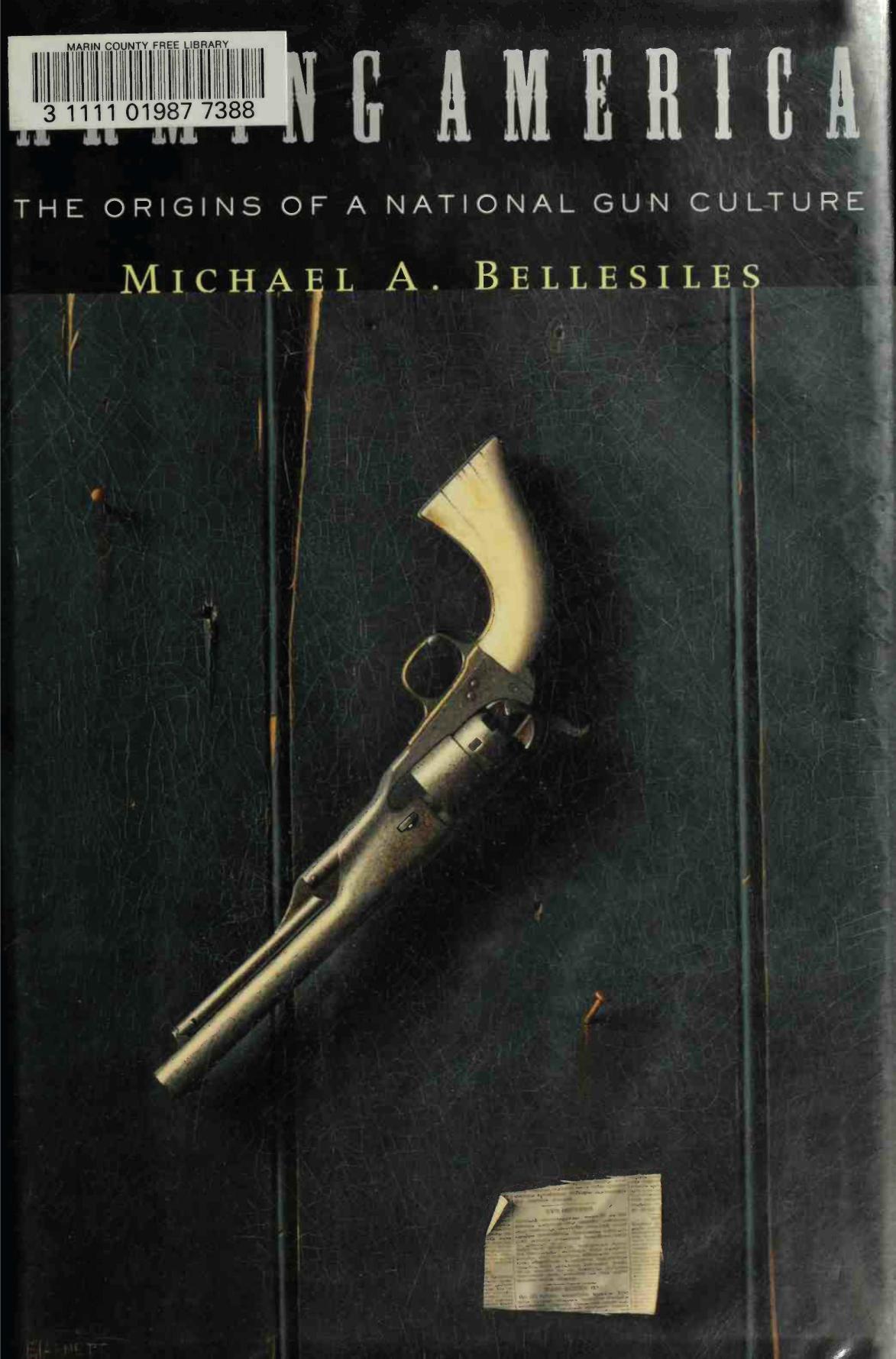Our Review
In the current debate over the role of guns in American life, there is one historical notion in particular that invigorates those who believe that an America stocked to the rafters with privately held firearms is the best and truest America.
I refer to the truism that our national identity has always been inextricably tied to our unparalleled intimacy with guns, that the pioneers who settled this country did so with musket ever at hand to provide food and self-defense; our Revolution was won by valorous citizen-soldiers taking up their trusty flintlocks in defense of hearth and home; and the Constitution's framers, mindful of this heritage, instituted an absolute freedom of individual gun ownership as a forever necessary safeguard against tyranny.
In Arming America: The Origins of a National Gun Culture, Emory University historian Michael A. Bellesiles leaps to the forefront of a recent move by scholars toward reexamining this mythology of the gun. To every article of the legend, Bellesiles mounts a relentless and eye-opening barrage of counterevidence, gathered over ten years of research in probate records, censuses, government and military documents, and other primary sources.
Examining the growth of our national gun culture from colonial times to Reconstruction, Bellesiles finds that its progress was a slow and tortured one. From the first settlements up until the Civil War, ordinary Americans were not heavily armed and were generally neglectful of the guns they did own. Guns of the time were expensive, clumsy, unreliable, and hard to maintain. Opposing other historians' claims for nearly universal gun ownership among the settlers, Bellesiles finds that apparently "at no time prior to 1850 did more than a tenth of the people own guns."
During the Revolutionary War, the civilian militias were, again contrary to myth, ineffective on the whole as a fighting force. One basic reason: The great majority of their members had never bothered to arm themselves or attain proficiency in shooting. After the war was won by professionals, the government labored for the next 70 years to arm a surprisingly resistant citizenry.
The Civil War finally brought reality into line with the myth. Technological improvements, massive government investment, and the training in gun use of virtually every able American male brought firearms into the mainstream at last -- with a chilling rise in civilian violence as its legacy.
The shattering implications of Bellesiles' argument for scholars, policy-makers, and ruminators upon the national character are clearly evident, but he leaves them unstated. We are left to draw our own conclusions, but this formidably researched, vigorously written book earns the power to ground our currently high-flown gun debate in solid historical earth.
--Edward Hutchinson


دیدگاه کاربران